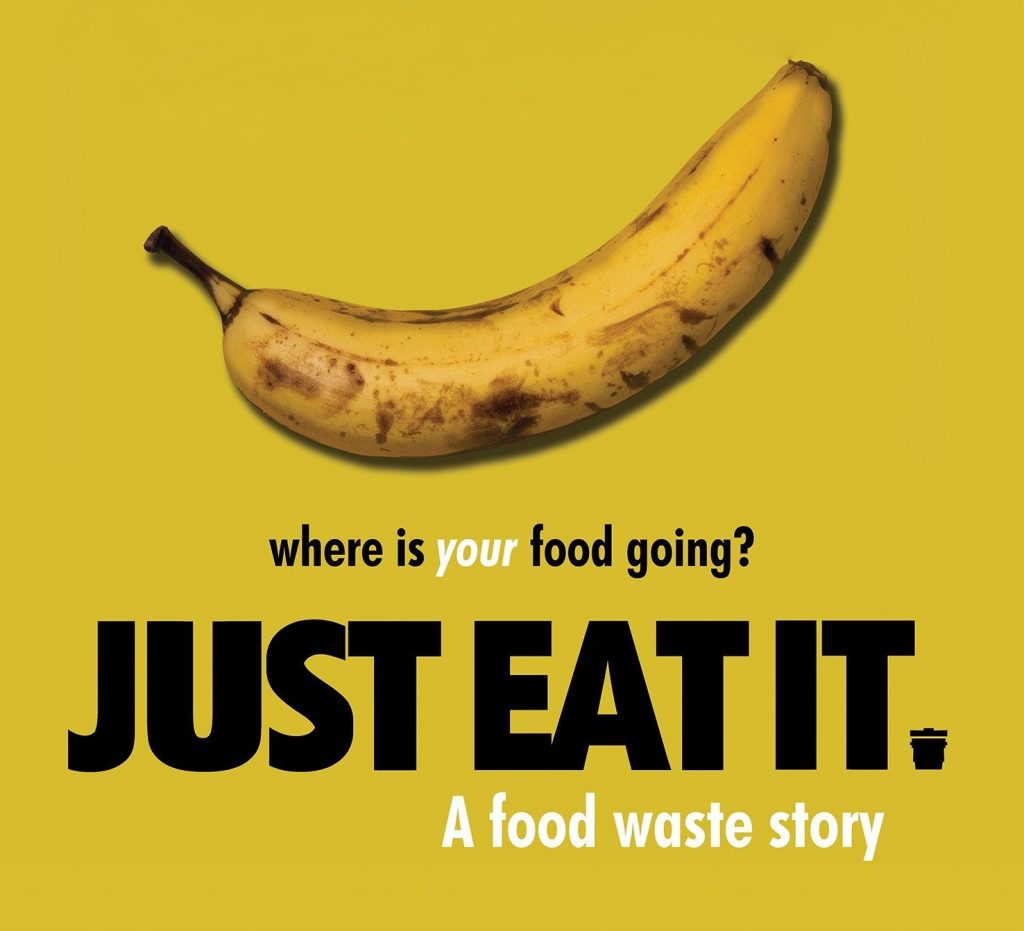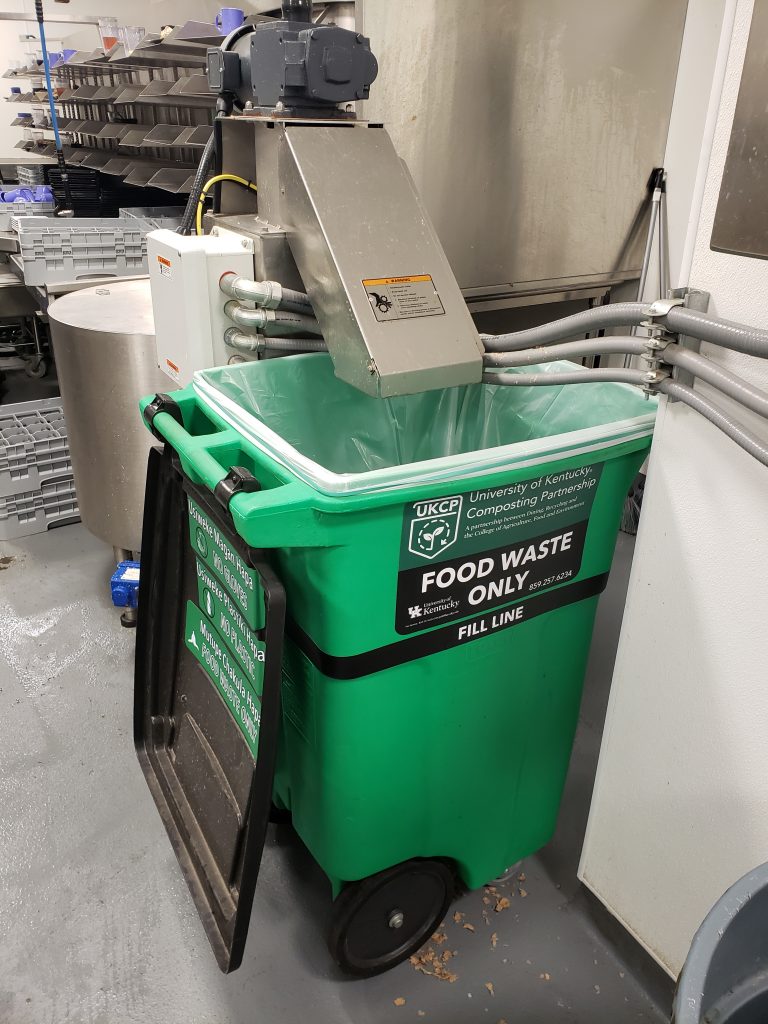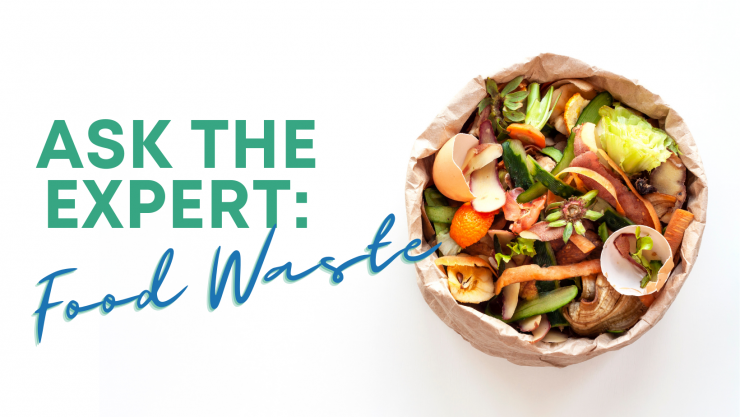During Waste Reduction Week, UK Recycling interns organized a documentary screening on food waste – Just Eat It. It’s free on YouTube, so go watch it! Sometimes documentaries can seem overwhelming and leave us feeling hopeless. We decided to provide a little hope for you and ask a panel of experts some questions to help us navigate this large and problematic challenge.

First up is Robert Eversole. Robert serves as the Director of Sustainability at UK Dining. On the side, he also owns and runs Crooked Row Farm, a sustainably-managed farm here in Lexington. Here is what he had to say:
Are there any particularly impactful regulations or legislation students could help advocate for?
“Food waste can stem from many sources, but a common source of food waste for consumers is confusion around food date labeling. Many people are understandably unsure about “sell-by,” “best-by,” “use-by,” “freeze-by” or “best before” dates found on labels. In fact, according to the USDA, these are all food quality indicators, and not food safety indicators.
There is a bill in the U.S. Congress, the Food Date Labeling Act, which seeks to standardize food date labeling to two standard phrases indicating either best quality (“Best if used by”) or safety (“Use by”) of food. The bill would also clarify that food can be safely donated after the “Best if used by date,” reducing the amount of food which is wasted rather than recovered to address food insecurity. According to ReFED, standardizing date labels could reduce about 582 thousand tons of food waste annually in the U.S., leading to a 162 billion gallon water savings and 2.73 million tons of CO2e reduction in greenhouse gas emissions.”
How can communities fight against the issue of food waste, as well as food insecurity, in a sustainable and ethical manner?
“Everyone has a part to play in reducing food waste and addressing food insecurity. At the community level, education around reducing food waste at home can be a powerful tool. Hosting workshops on meal planning, root-to-stem cooking, and home composting empowers individuals to act at home to reduce food waste. Increasing access to food is also important to fight food insecurity.

Holding donation drives for local food banks or pantries is a great way for community members to give back, and community fridges are an increasingly common way to connect safe surplus food to those in need. Check out Freedge to learn more about these mutual aid solutions.”
What is UK doing to reduce the amount of food waste it generates/reduce the environmental impact of food waste that has already been created?
“UK Dining strives to set the standard in reducing the environmental impact of food waste on campus. Our management of food waste can be broken down into 3 parts, each with their own approach to reducing waste:
- Pre-consumer (prep waste): We eliminate waste before it’s generated through a holistic food management process that includes menu planning, customer and portion forecasting, perfect purchasing, waste tracking, post-analysis and more.
- Consumer (the meal itself): We eliminate waste at the consumer stage through efforts such as tray-less dining and consumer education. On average, tray-less dining reduces food waste by about 2 ounces per person per meal, which really adds up over time.

3. Post-consumer (leftovers): Rather than letting edible food become landfill bound waste, we utilize our donation network which ensures the food quickly makes it into the hands of those who need it most. On average, 2.83 tons of food is diverted from the landfill through donation, which translates into approximately 4,750 meals each year. From coffee grounds to cooking oil, some food waste is inevitable. In order to reduce the environmental impact on our community, we make sure to dispose of this waste in a sustainable and responsible manner.
During normal operations, we recycle over 537,000 gallons of cooking oil. With the help of UK Recycling & College of Agriculture Food and the Environment, food waste begins a journey to our compost partner where it is transformed into a nutrient dense soil amendment, before being returned for use around campus. Composting on average 124 tons of food each year, we are now producing enough excess compost that the university is reducing its use of chemical fertilizers on campus.”
As individuals, what do you think is the largest step we can take to lessen our footprint in terms of the food we consume?
“According to data from ReFED, the residential sector (i.e. individual consumers, as opposed to the retail, food service, farming, or manufacturing sectors) is the largest source of food waste in the U.S. In 2019, the residential sector produced 30 million tons of food waste in the U.S., about 37% of the country’s total food waste. Fortunately, there are many actions we can take as consumers to minimize the amount of food waste we produce.
The best way to reduce food waste is to avoid creating it in the first place. When dining on campus, you can practice this by taking only what you are certain you can finish or carrying out any leftovers to finish later. If you live off campus, plan your grocery shopping and meals carefully to avoid buying more than you can use in a timely fashion. If you struggle to finish fresh foods before they can spoil, consider purchasing frozen or canned options instead, or prioritize using perishable items first. Check out this recent blog post for more tips on reducing your personal food waste.”
What do you see as the most pressing issue coming out of this dilemma of global food waste?
“It’s troubling to see food going to waste in such huge quantities when food insecurity is also so widespread. It’s critical that we find effective solutions at each stage of the food system to ensure enough safe, healthy food is accessible for all.”
We all can make a difference! Plan out your meals this week and let us know your favorite recipe you tried!



























